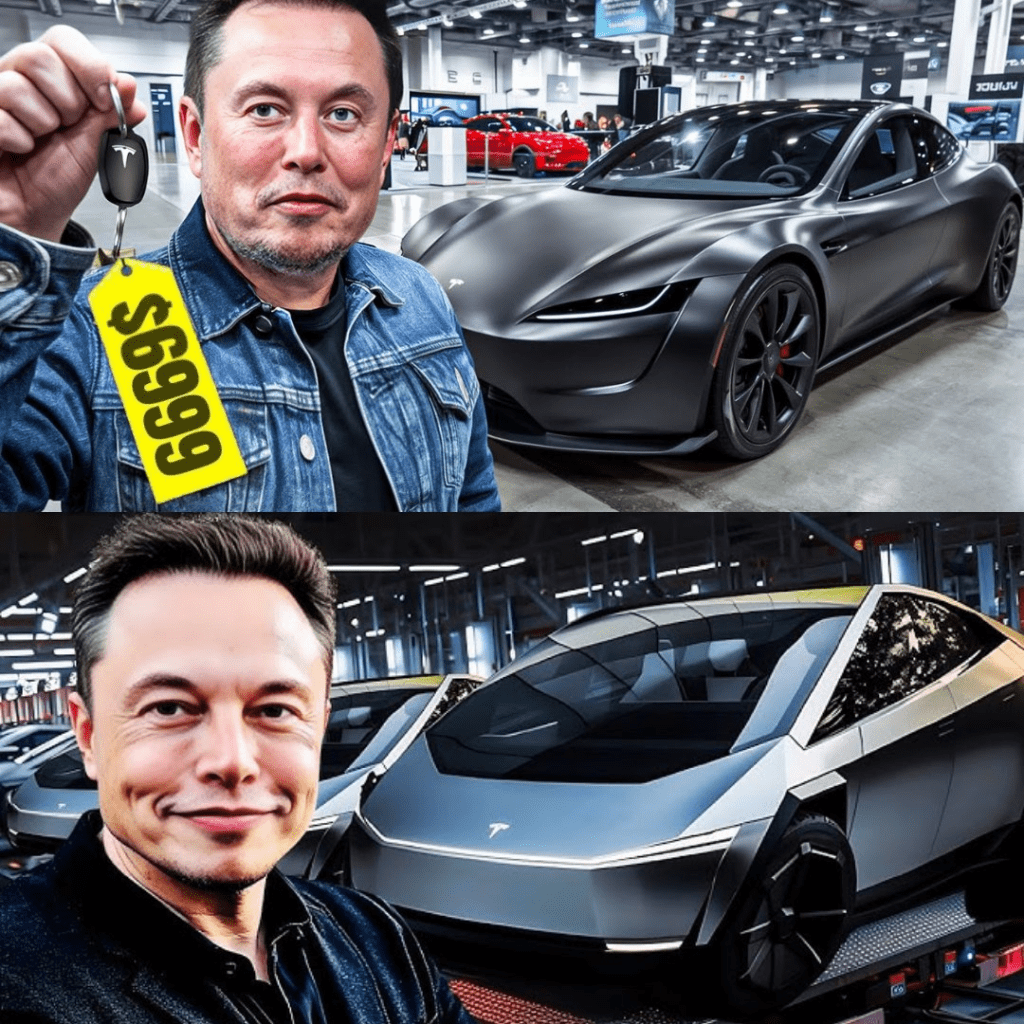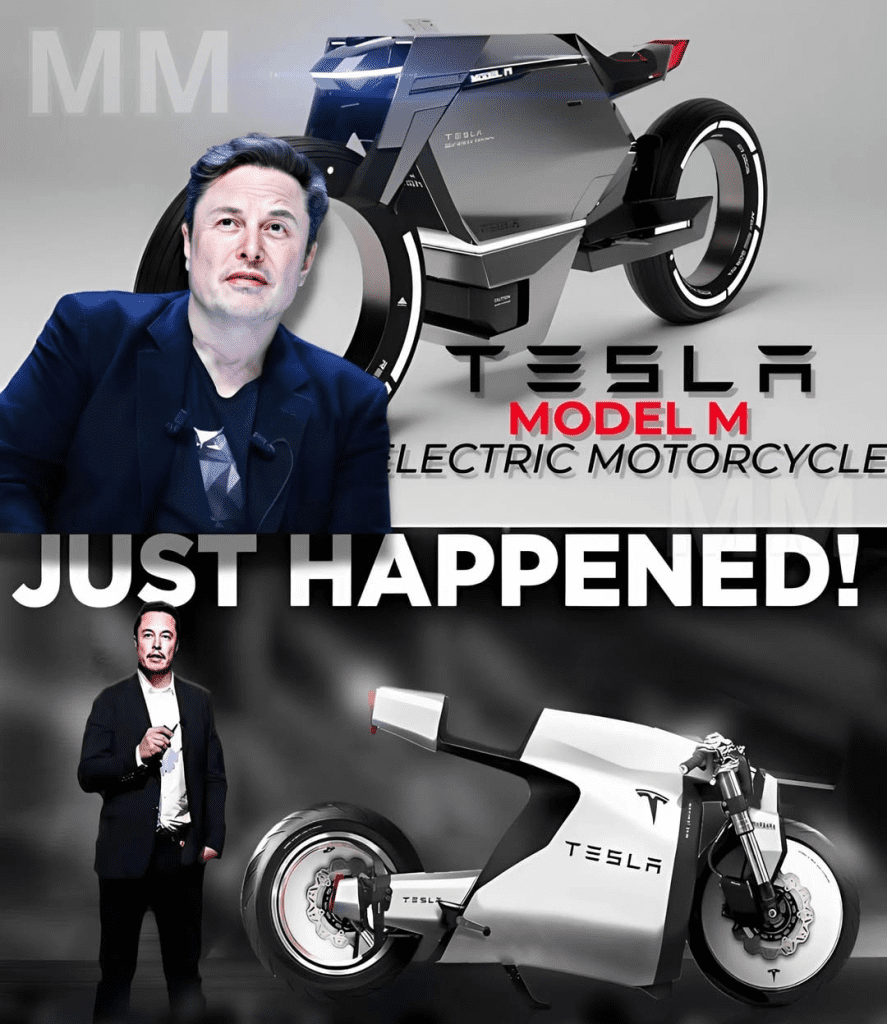In a groundbreaking announcement that has sent ripples through the automotive and energy industries, Elon Musk revealed a monumental shift in the world of electric vehicles (EVs). At a press event for Tesla’s highly anticipated 2025 Mannequin 2, Musk announced that the era of lithium-ion batteries—long seen as the backbone of electric vehicle power—was coming to an end. In its place, a new, cutting-edge technology is set to take over: the aluminum-ion super battery.

This announcement promises to revolutionize the EV market and could have far-reaching implications for everything from energy storage to renewable energy, paving the way for more sustainable, efficient, and affordable electric vehicles.

The End of Lithium-ion Batteries
For over a decade, lithium-ion batteries have powered everything from smartphones to laptops, and more recently, electric vehicles. However, despite their many advantages, these batteries are far from perfect. Lithium-ion batteries have limitations in terms of energy density, lifespan, charging speed, and sustainability. These challenges have long been a roadblock for companies like Tesla, which are striving to build the next generation of clean, green vehicles.
During the Tesla 2025 Mannequin 2 event, Musk boldly declared, “The age of lithium-ion is over. The future is aluminum-ion.”
This announcement has sent shockwaves through the automotive industry, as Tesla and its competitors have relied heavily on lithium-ion technology to power their electric vehicles. But Musk’s confidence in aluminum-ion batteries signals a game-changing leap forward. Not only does the new battery technology promise higher performance, but it also addresses several of the key environmental concerns associated with lithium-ion batteries.

The Aluminum-ion Super Battery: What’s New?
The aluminum-ion super battery Musk introduced is based on cutting-edge research that promises to overcome the major limitations of lithium-ion technology. Though aluminum-ion batteries have been in development for some time, their commercial viability has been limited—until now. According to Musk, Tesla has partnered with leading scientists and material engineers to develop a revolutionary new version of the aluminum-ion battery, which will be used exclusively in the upcoming 2025 Tesla Mannequin 2.
So, what exactly makes the aluminum-ion super battery so special?
- Higher Energy Density: One of the major issues with lithium-ion batteries is their relatively low energy density, meaning that they take up more space and are heavier for the amount of energy they store. Aluminum-ion batteries, on the other hand, promise a much higher energy density, allowing for longer driving ranges without sacrificing space or weight. This breakthrough could mean that the Mannequin 2 will boast ranges far beyond those of existing EVs on the market, pushing the boundaries of what’s possible in terms of distance on a single charge.
- Faster Charging: Charging time has always been a significant concern for electric vehicle owners. While lithium-ion batteries typically take several hours to charge fully (unless using ultra-fast charging stations), aluminum-ion batteries promise lightning-fast charging times. Tesla claims that the Mannequin 2 will be able to charge up to 80% in just under 10 minutes—far faster than any lithium-ion battery could ever achieve.
- Environmentally Friendly: Aluminum is abundant and much more environmentally friendly compared to lithium, which requires mining operations that are often damaging to the environment. The production of aluminum-ion batteries involves far less harmful extraction and processing, making them a greener alternative. Additionally, aluminum-ion batteries are expected to have a longer lifespan than their lithium-ion counterparts, reducing waste and the need for frequent replacements.
- Reduced Cost: The cost of lithium-ion batteries has been one of the major obstacles to making electric vehicles affordable for the average consumer. Aluminum-ion batteries, being cheaper to produce due to the availability of aluminum, could drastically reduce the cost of EVs. This could allow Tesla to reach an even larger consumer base, making EVs more accessible to the mass market.
- Improved Safety: One of the biggest concerns with lithium-ion batteries is their propensity to overheat, which can lead to fires or explosions in extreme cases. Aluminum-ion batteries are far less prone to overheating, reducing the safety risks that have sometimes plagued lithium-ion-powered vehicles. Tesla’s new battery technology could be a major step toward making EVs even safer for consumers.
The 2025 Tesla Mannequin 2: A New Era for EVs
The upcoming 2025 Tesla Mannequin 2, which will be the first vehicle to feature the aluminum-ion super battery, is expected to set new standards in the EV industry. Musk and Tesla’s engineering team have already hinted at the Mannequin 2’s impressive performance capabilities, which will not only include an extended range and ultra-fast charging times but also cutting-edge autonomous driving features, a next-gen infotainment system, and enhanced sustainability features.
Tesla’s ability to integrate this revolutionary battery technology into the Mannequin 2 is likely to solidify its position as the leader in the EV market. While other automakers have been working on electric vehicles for years, none have yet unveiled a battery breakthrough as significant as the aluminum-ion super battery. Tesla’s reputation for innovation could be further solidified by this major leap forward, pushing other car manufacturers to follow suit in developing similar technologies.
Broader Implications for the Energy Sector
While the introduction of the aluminum-ion battery to electric vehicles is certainly exciting, the impact could extend far beyond the automotive industry. With the battery’s potential to store more energy, charge faster, and last longer, it could revolutionize energy storage, renewable energy systems, and even consumer electronics.
One of the major obstacles to renewable energy, such as solar and wind power, is the ability to store energy efficiently. The aluminum-ion battery could solve this issue, providing a much more efficient means of storing renewable energy for later use. In turn, this could drive further adoption of clean energy solutions, reducing reliance on fossil fuels and advancing global sustainability efforts.


